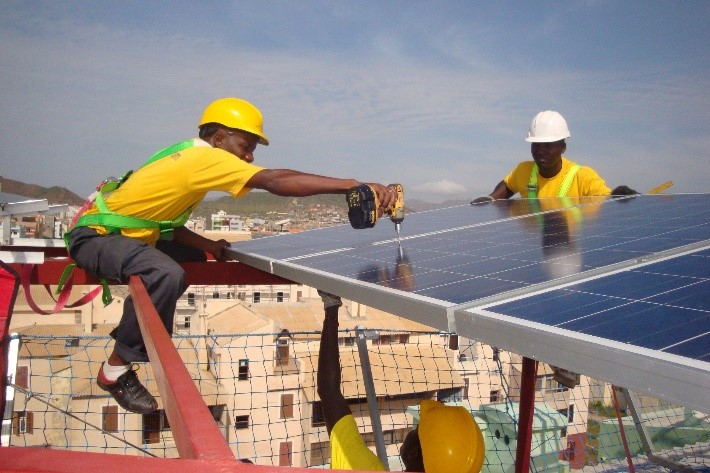Free Courses Sale ends Soon, Get It Now


Free Courses Sale ends Soon, Get It Now



Disclaimer: Copyright infringement not intended.
Context
STAR-C Initiative
About
Partnership
Aim
Objective
Initial Focus
Expansion
International Solar Alliance (ISA)
About
Joint effort
Conception
Members
Headquarter
Main Mandate
Focus
Partnership
ISA’s ‘Towards 1000’ strategy
Significance of ISA
|
United Nations Industrial Development Organization (UNIDO) The United Nations Industrial Development Organization (UNIDO) is a specialized agency of the United Nations that assists countries in economic and industrial development. It is headquartered at the UN Office in Vienna, Austria, with a permanent presence in over 60 countries. UNIDO comprises 170 member states, which together set the organization's policies, programs, and principles through the biannual General Conference. UNIDO was established in 1966 by the UN General Assembly to promote and accelerate the industrialization of developing countries, which were emerging from decolonization in record numbers and with little to no industrial base. In 1979 it became one of the 15 specialized agencies of the UN, with its new constitution coming into force in 1985. Since its founding, the organization has restructured and reformed several times; the 2013 Lima Declaration expanded its mission to include promoting "inclusive and sustainable industrial development" (ISID), defined as benefiting greater numbers of people while safeguarding the environment. UNIDO is a member of the United Nations Development Group, a coalition of UN entities aimed at fulfilling the Sustainable Development Goals. On 25 July 2016, the United Nations General Assembly adopted Resolution A/RES/70/293, proclaiming the period 2016-2025 as the Third Industrial Development Decade for Africa (IDDA III). UNIDO was called upon to lead the initiative in collaboration with a range of partners. These include the African Union Commission, the New Partnership for Africa’s Development, the Economic Commission for Africa, etc. From 2018 to 2021, UNIDO's strategic priorities include creating shared prosperity; advancing economic competitiveness; safeguarding the environment; and strengthening knowledge and institutions. Each of these goals is to be achieved through technical cooperation, policy advice, analysis and research, the development of uniform standards and quality control, and partnerships for knowledge transfer, networking, and industrial cooperation. |
|
PRACTICE QUESTION Q. Consider the following statements with reference to International Solar Alliance (ISA). 1. ISA was conceptualized on the sidelines of the 21st Conference of Parties (COP21) to the United Nations Framework Convention on Climate Change (UNFCCC) held in Paris in 2015. 2. All member states of the United Nations are eligible to join the International Solar Alliance (ISA). 3. The ISA is guided by its ‘Towards 1000’ strategy which aims to mobilise USD 1,000 billion of investments in solar energy solutions by 2030. 4. The STAR-C is an initiative, run by the International Solar Alliance in partnership with the United Nations Industrial Development Organisation (UNIDO) and it aims to create a strong network of institutional capacities within ISA member states to enhance quality infrastructure for the uptake of solar energy products and services. Which of the above statements is/are incorrect? (a) 1 only (b) 2 and 3 only (c) 3 and 4 only (d) None of the above. Correct Answer: (d) None of the above. |
© 2024 iasgyan. All right reserved